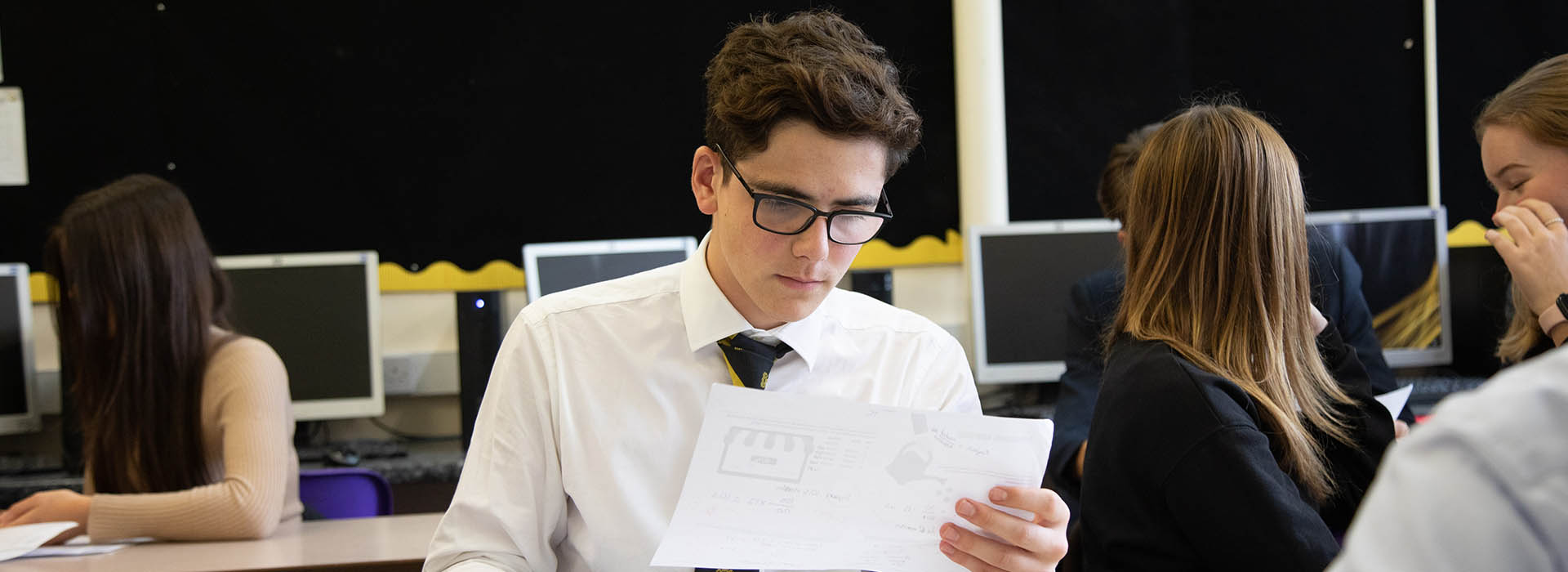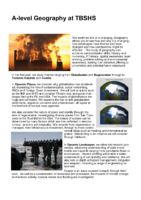Geography
“Geography is the subject which holds the key to our future.” – Michael Palin, Former President, Royal Geographical Society.
MINIMUM REQUIREMENTS: Grade 6 in GCSE Geography
Subject Leader: Ms J Winterburn
Examination Board: Edexcel
A-Level Syllabus Code: 601/8417/6 (9GEO)
Examinations: 80%
Non-Exam Assessment: 20%
What is A-Level Geography?
The world in which we live is rapidly changing. A-Level Geography allows us to understand how and why it is changing and how we can respond and adapt to such change, through examination of contemporary case studies and ideas. Geographical issues are increasingly part of local, national and international news agendas and debates; issues such as geophysical hazards, climate change, globalisation, migration, urbanisation, extreme weather, energy security, water conflicts, global superpowers, and development, to name but a few! During this A-Level Geography course you will study all the above issues – and many more besides. There has never been a better, nor more relevant time, to study Geography.
What makes a good Geographer?
Whilst studying Geography, you will develop communication skills, literacy and numeracy, IT literacy, spatial awareness, team working, problem solving and environmental awareness. To be a good geographer, you need to be curious; to be open to having your preconceptions about the world challenged; to want to develop an opinion and to be keen to engage in debate about the future. Through this course, you will grow as an independent thinker and as an informed and engaged citizen, who understands the role and importance of geography as one of the key disciplines relevant to understanding the world’s changing peoples, places and environments.
What can I expect to learn in Geography?
The A-Level will be examined through 4 components – 3 papers and 1 non-examination assessment.
1: Dynamic Landscapes, Physical Systems and Sustainability (30%)
Tectonic Processes and Hazards; Coastal Landscapes; the Water Cycle and Water Insecurity; the Carbon Cycle and Energy Security; Climate Change Futures
2: Dynamic Places, Human Systems and Geopolitics (30%)
Globalisation; Shaping Places; Superpowers; Global Development and Connections
3: Synoptic assessment (20%)
This paper brings together your understanding of geography from across the course to examine a specified place. It will link to themes e.g. players, attitudes and actions; futures and uncertainties.
4: Independent Investigation (Coursework 20%)
This involves 4 days of fieldwork over two years and is an opportunity for you to specialise in an area that interests you. You will define and investigate a question of your choice, then collect qualitative and quantitative data, and present, analyse and evaluate it, in order to develop your geographical understanding.
Where could Geography take me?
A successful A-Level geographer will leave with a broad and detailed understanding of key national and global issues, as well as the capability to successfully acquire, present and analyse data and write academic essays. As well as conducting fieldwork investigations at the coast, we regularly visit the Royal Geographical Society to attend workshops and public debates.
It is often said that Geography ‘opens doors’ as its multidisciplinary nature enhances understanding in many academic fields and it complements subjects including Politics, History, Economics, Business Studies, and Biology to name a few. Its subject matter offers a sound basis for a variety of career opportunities and the particular skills acquired in the study of Geography are highly sought after by employers in Research & Consultancy, Finance & Business, Modern Industry, The Civil Service (across all departments, in the UK and overseas), Law, Journalism and Science. There are also a wide variety of geography-related careers; please speak to your teachers for further information.




